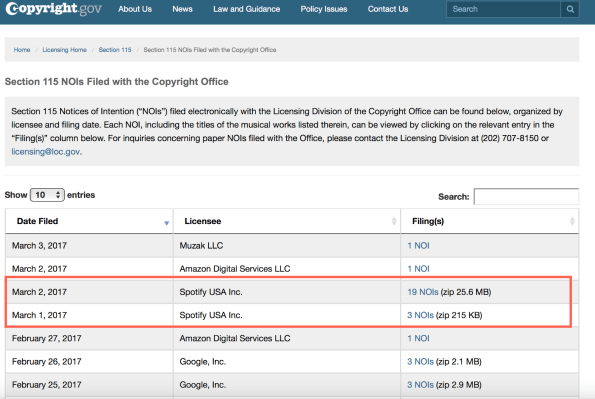________________________
Guest post by Chris Castle of Music • Technology • Policy
Related articles
Spotify recently filed 217,112 "address unknown" NOIs with the U.S. Copyright Office saying that they were unable to locate any owner of these copyrighted songs anywhere in public records.
________________________
Guest post by Chris Castle of Music • Technology • Policy
Related articles